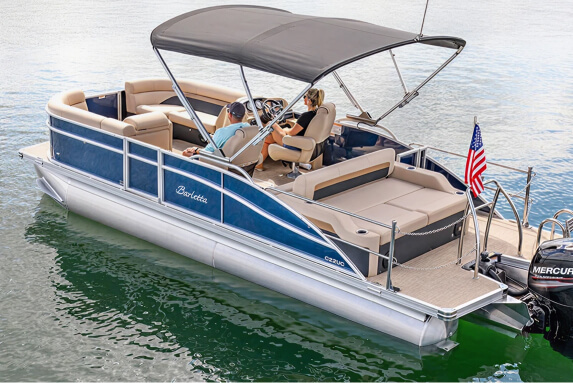MerCruiser Water Pump Kits
Every cooling system relies on a few key components working together, and when one starts to fail, the rest can follow. A MerCruiser water pump kit makes maintenance easier by packaging the parts you actually need (housing, gaskets, seals, and the impeller itself), so you can rebuild the system in one go instead of chasing individual pieces. Wholesale Marine carries MerCruiser impeller kits and pump assemblies for nearly every generation of MerCruiser, so you can keep your engine's temperature right where it should be.
If you prefer to handle your own maintenance, MerCruiser impeller kits give you everything you need to do it right the first time. And if you'd rather leave the wrench work to your marine tech, you'll still know you're getting dependable gear ready for the long haul.

OEM vs Aftermarket: What's Right for Your Boat
When you're ready for replacement parts, both OEM and aftermarket options have their place. Genuine Mercury-MerCruiser water pumps offer exact factory fit and long-term reliability, which makes them a great choice for owners who prefer original specs.
Aftermarket brands like Sierra match that performance with cost-effective kits that meet or exceed OEM standards. Either way, you'll get dependable parts ready to keep your engine cool and protected.
At Wholesale Marine, we stock both options and can help you decide which one fits your setup, your maintenance routine, and your budget best.
How to Replace Your MerCruiser Water Pump
If you're comfortable working on your own boat, replacing a MerCruiser water pump is a job you can tackle with a steady hand and the right parts. The process isn't difficult, but a few careful steps can make all the difference.
How to replace a MerCruiser water pump:
- Drop the gearcase to access the water pump housing, removing the mounting bolts.
- Locate the bolt beneath the trim tab and mark its position to simplify reassembly.
- Use the proper socket to remove the four mounting bolts holding the pump assembly.
- Inspect the old impeller; if its vanes are bent, cracked, or stiff, it's due for replacement.
- Apply a thin coat of sealant on the new gaskets to help prevent leaks.
- Twist the new impeller gently clockwise as you press it into the housing liner.
- Align the impeller key on the driveshaft, then lower the housing into place.
- Tighten the bolts snugly, but avoid overtightening.
MerCruiser impellers should be checked every year or roughly every 100 hours of operation. Replacing your impeller early keeps your engine running cooler and prevents expensive overheating repairs later.
Keep Your MerCruiser Running Cool With Wholesale Marine
When it's time for maintenance, count on Wholesale Marine for everything your cooling system needs. From complete MerCruiser water pump assemblies to individual impellers, thermostats, and temperature senders, we've got the parts that keep your engine performing its best. If you're not sure which kit fits your model, our customer service crew is ready to help you find the perfect match through our easy Online Parts Finder or by phone.
We're here Monday through Friday from 9 a.m. to 6 p.m. EST to answer questions and help you gear up for your next trip. Don't forget to join our Captain's Club Rewards Program to earn discounts and perks every time you shop. At Wholesale Marine, keeping your MerCruiser running cool is what we do best.
Frequently Asked Questions About MerCruiser Water Pumps & Impellers
How can I tell if my MerCruiser water pump or impeller needs replacement?
Watch for warning signs like overheating, reduced water flow, or engine alarms. During inspection, bent or brittle impeller vanes mean it's time to swap in a new one before it fails completely.
Can I replace my MerCruiser water pump or impeller myself?
Yes, if you're comfortable working with basic tools and follow the proper steps. Many boaters handle the replacement themselves using a MerCruiser impeller kit. If you're unsure, a marine technician can take care of it quickly.
What causes a MerCruiser impeller to wear out early?
Friction, heat, and debris are the usual culprits. Running the engine without water, even briefly, can destroy the impeller, since it relies on water for cooling and lubrication. Always flush your system after use to help it last longer.


